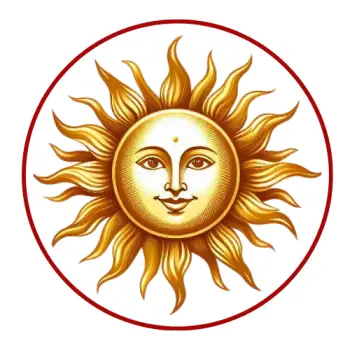Marriage Matchmaking: An Ancient Science for Modern Relationships

Marriage matchmaking is one of the most sought-after services in the field of astrology, especially in cultures that place importance on compatible life partnerships. By analyzing astrological charts, it’s possible to assess various aspects of compatibility that can play a crucial role in a harmonious marriage. Here, we’ll explore the concepts, methodology, and key factors involved in marriage matchmaking from an astrological perspective, particularly from the Vedic astrology viewpoint.
1. Understanding Marriage Matchmaking in Astrology
Marriage matchmaking in astrology—also known as kundali matching in Vedic tradition—is the process of comparing two individuals' birth charts to understand the compatibility of various aspects of life. Each birth chart is unique and maps the celestial positions of planets at the time of birth, which significantly influence personality, temperament, and life outcomes.
In Vedic astrology, marriage compatibility is analyzed primarily through a system called Ashtakoota Milan or Guna Milan, where 36 points are allocated across eight different categories. Each category represents a vital element of marital harmony, and a score of 18 or above is traditionally considered favorable for marriage.
2. The Eight Aspects of Compatibility (Ashtakoota)
- Varna (1 Point): It represents the spiritual compatibility and ego level between the couple, based on caste or social hierarchy, metaphorically speaking. This doesn’t refer to the actual caste but rather the compatibility of spiritual inclinations.
- Vashya (2 Points): This aspect assesses the degree of control or influence that one partner can have over the other. It indicates dominance and mutual influence in the relationship.
- Tara (3 Points): It evaluates health, longevity, and overall well-being for both partners, a critical aspect for a long and healthy life together.
- Yoni (4 Points): This category determines the physical and sexual compatibility between the partners. A higher score here is desirable for marital harmony and mutual attraction.
- Graha Maitri (5 Points): It considers the mental and emotional compatibility based on planetary alignments in each chart. This aspect reflects intellectual and friendship compatibility.
- Gana (6 Points): It evaluates the nature and temperament of each individual, classifying them into three categories (Deva, Manushya, and Rakshasa). Compatibility here suggests if the couple’s fundamental natures align well.
- Bhakoot (7 Points): This category is related to emotional bonding and family welfare, evaluating financial prosperity and offspring success. The higher the Bhakoot score, the more prosperous the family’s future is believed to be.
- Nadi (8 Points): It is one of the most critical factors, as it determines the genetic compatibility between the partners to ensure healthy progeny. Ideally, the Nadi should differ between the partners for optimal compatibility.
3. Planetary Influence on Marriage
Beyond the Ashtakoota system, several planets play a vital role in determining marriage compatibility:
- Venus (Shukra): Known as the planet of love and romance, Venus represents marriage, relationships, and affection. A strong Venus in one’s chart often signifies a harmonious marriage.
- Jupiter (Guru): Jupiter symbolizes wisdom, morality, and spirituality, crucial qualities for a supportive partnership. For women, Jupiter also signifies the husband’s qualities.
- Mars (Mangal): Mars signifies energy, passion, and assertiveness. However, a poorly placed Mars can lead to Manglik dosha, which can create marital issues if not harmonized correctly.
- Moon (Chandra): The Moon governs emotions, intuition, and mind. A harmonious placement ensures mental peace and emotional stability, essential for long-term compatibility.
4. Manglik Dosha (Mangal Dosha) and Its Remedies
One of the commonly discussed elements in Vedic matchmaking is Manglik dosha, which occurs when Mars is placed in the 1st, 4th, 7th, 8th, or 12th house in one’s chart. This positioning can cause challenges or conflicts in marriage. Remedies include:
- Kumbh Vivah: A ritual marriage to a symbolic deity or tree before marriage.
- Gemstone Remedies: Wearing gemstones like red coral (associated with Mars) under the guidance of an astrologer.
- Mantras and Pujas: Chanting specific mantras or conducting poojas to harmonize Mars energy.
5. Importance of Moon Sign Compatibility
Moon signs are pivotal in Vedic astrology for assessing the mental and emotional compatibility of couples. The Moon, governing emotions, represents the mind and emotional responses, essential in understanding how two people will relate on a daily basis. The Moon sign and its Nakshatra (constellation) can provide deep insight into both individuals’ instinctual behaviors, enhancing the compatibility analysis.
6. Additional Factors in Marriage Matchmaking
- Dasha Compatibility: A dasha is a planetary period that impacts life events. Compatibility of the dashas ensures that both partners' life events, such as career, health, or financial changes, will align in supportive ways.
- Navamsa Chart: Also known as the ninth divisional chart, the Navamsa focuses exclusively on marriage and is considered the most vital chart in judging marital bliss and compatibility. Astrologers examine the Navamsa chart to understand post-marriage life.
7. Modern Applications of Vedic Matchmaking
Astrology is increasingly gaining recognition for its unique ability to offer guidance on the intangible aspects of relationships. With the advent of digital astrology software and websites, matchmaking services have become more accessible. These platforms allow couples to assess compatibility easily and include recommendations for potential remedies if required.
8. Conclusion: The Balance of Tradition and Personal Choice
While marriage matchmaking offers valuable insight into compatibility, it’s essential to recognize the balance between astrological guidance and personal connection. A strong relationship requires mutual respect, understanding, and shared values beyond planetary alignments. Many modern couples view matchmaking as one of many tools in understanding compatibility rather than as the sole deciding factor.
Final Thoughts
Marriage matchmaking is a beautiful blend of ancient wisdom and modern application. When conducted thoughtfully, it can provide a unique layer of insight to help individuals build a harmonious life together, navigating both joys and challenges. It emphasizes not only compatibility but also mutual respect and growth, making it a valuable approach for couples seeking a lasting, fulfilling relationship.
